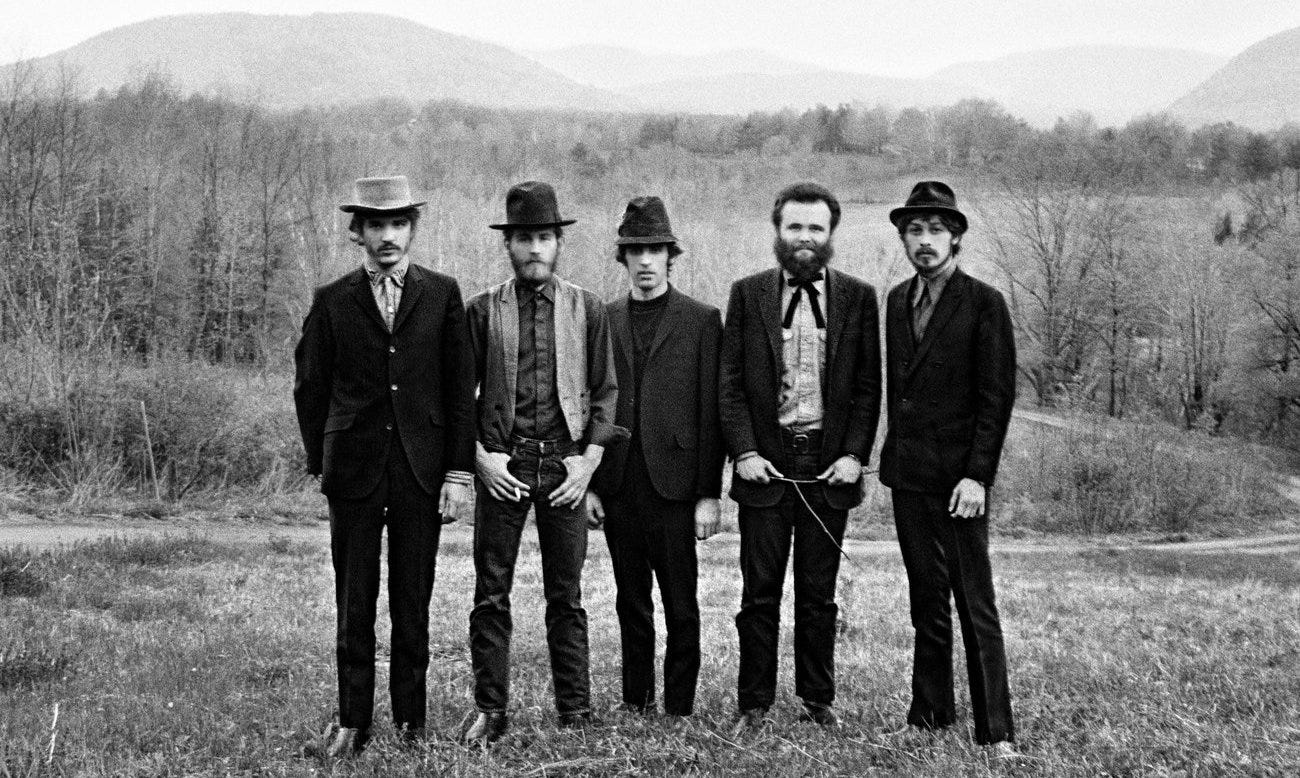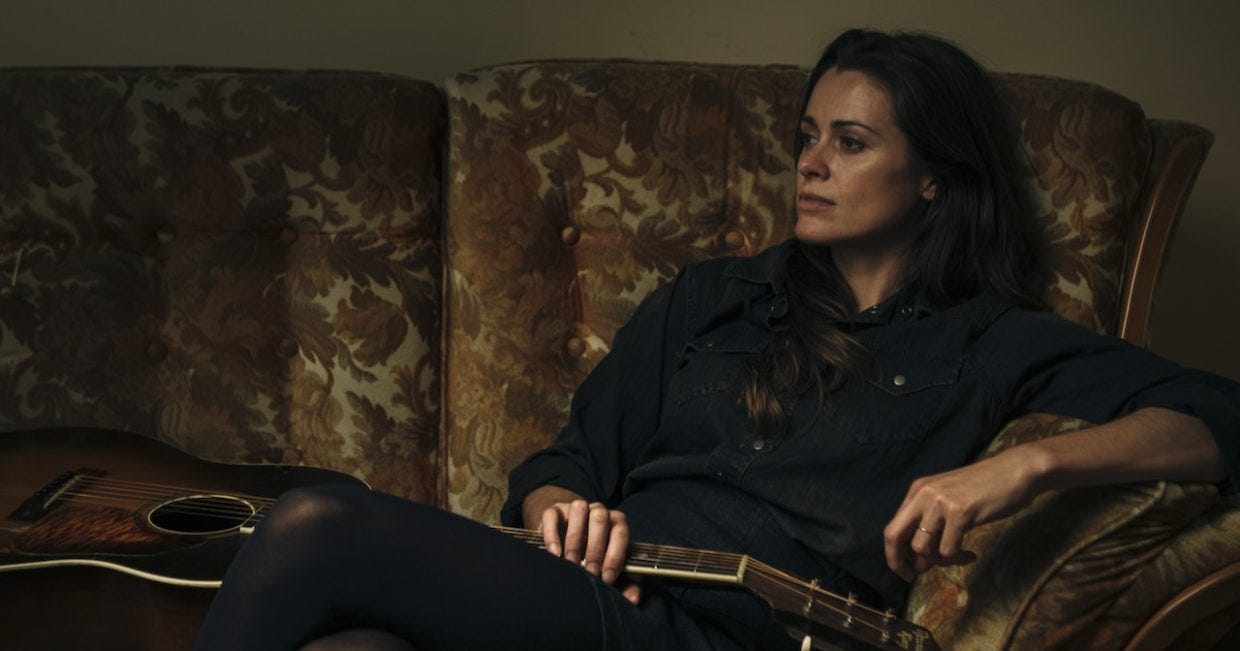
Robbie Robertson died last month. When I think about the music that I’ve loved most in my life, it’s impossible not to think of him. He may have been the fourth best singer in a five-piece group, but he used that to his advantage. He was The Band’s principal songwriter, and he wrote with the knowledge that his words would be sung by three exceptional voices, that his music would be played by five world-class musicians. Not many songwriters have that kind of luxury.
They began as a backing band – first for Ronnie Hawkins, then for Bob Dylan – and that gave them, I think, a kind of telepathy. They seemed always to know what the others were about to do, or at the very least to trust that, whatever it was, it would be right.
Robertson’s songs had deep roots – in country, blues, folk, and R&B – and he brought to these influences a musical sophistication and an instinct for storytelling. The Band’s best material sounded both traditional and brand new at once. This particular song, ‘The Unfaithful Servant’, from their second album, is a perfect example.
It begins with a drawing in of breath – two breaths, in fact – as the acoustic guitar, piano and bass move against each other to create a kind of awkwardness. The guitar drops from some version of an F# chord to some version of an E, while the bass goes the other way, rising to a G#. You don’t need to know this, but your ear will hear it. You’ll recognise a slight tension between the instruments, and you’ll anticipate a release.
When it comes, just three seconds into the song, the chord that opens the first verse does indeed feel like a sigh of relief. The musicians are together now, all moving in the same direction. And to begin with, it’s just the three of them: Robbie Robertson on acoustic guitar, Rick Danko on bass, and Richard Manuel on piano.
In the mix, guitar and piano are separate, one far to the left, the other to the right, so that each is entirely distinct. Listen to the song on headphones and you’ll notice a wide space between them – a chasm, near enough. And what fills that space, right from the start, is Rick Danko’s voice.
There is a sweetness to that voice, there’s no doubt about it. There’s a high, honeyed clarity. But there’s also an unevenness. His words can sound ragged at the edges. There’s power to it, yes, but there’s pain, too. This song doesn’t have the heartbroken anguish that you hear on ‘It Makes No Difference’, his most celebrated performance. What it has is anxiety and regret.
These feelings, conveyed in Danko’s voice, are mirrored in the words he sings, which are addressed to the character of the title:
Unfaithful servant, I hear you’re leavin’ soon in the mornin’ What did you do to the lady, that’s she’s gonna have to send you away?
That question hangs over the song. What has this servant done to be labelled ‘unfaithful’? What is it that has led to their banishment?
But there are other questions here, too. For one thing, where are we? And when? It’s the past, presumably. That’s where the words ‘servant’ and ‘lady’ both point. But when? Nothing – aside from a train, mentioned in the second verse – fix this song anywhere, either in time or in place.
So is it an affair that’s been uncovered? Is the lady acting out of shame? Or has the servant betrayed their mistress in some way?
‘You don’t have to say you’re sorry,’ the narrator explains, ‘If you done it just for the spite, or did you do it just for the glory?’
If anything, the song becomes more ambiguous as it goes on, and by the end of the second verse it’s no longer clear whose voice we’re actually hearing. Is it still the original narrator, or is it, now, the servant themselves.
It makes no diff’rence if we fade away It’s just as it was And it’s much too cold for me to stay
By this point, the sound is bigger. Levon Helm’s drums arrived early, in the first verse, and since then, the unusual, descending chord sequence has been filled out with a brass section: Garth Hudson on soprano saxophone and producer John Simon on tuba. It’s a doleful sound, a kind of moaning that rises high in the mix.
As the third verse begins, the confusion between narrators goes even further. The first lines, evidently, belong to the servant:
Goodbye to that country home, so long, lady I have known, Farewell to my other side, I’d best just take it in stride
This servant does not want to leave. There is regret here, and that phrase ‘other side’ makes me wonder again about a relationship, an affair. Does the servant use these words the way some might refer to their ‘other half’? Well, perhaps. But by the end of this last verse, another possibility emerges:
Oh, lonesome servant, can’t you see, We’re still one and the same Just you and me.
This could be an expression of solidarity from the singer. But it could also suggest – as the switching back and forth of perspectives might imply – that the narrator and the servant are in fact the same person. So could the song be the servant’s own self-narration of their downfall, a way to try and make sense of what has happened? I’m not sure, but it’s possible.
Robbie Robertson didn’t write songs like Bob Dylan. His influences were always much broader than that. But what he learned from his apprenticeship with Dylan was to trust uncertainty, to accept that a listener doesn’t need to understand a song on the first listen, or indeed on any listen. He learned that a song doesn’t have to answer all the questions that it poses.
The last minute of ‘The Unfaithful Servant’ is an instrumental. First, a guitar solo – a rarity on this album – in which the singer’s anxiety is transferred to the strings. The plectrum seems to shudder and shake, and the notes come quickly. Then, the brass takes over, and though Hudson’s saxophone soars in the final seconds, the effect, ultimately, is that of a lament. Whatever it is that has happened here, it is now over.
One more thing…
This past month, I’ve listened often to Caitlin Canty’s most recent album, Quiet Flame. It’s a beautiful piece of work, gentle and generous throughout. I reviewed the album here, at For Folk’s Sake, and if you’d like a taster, I cannot recommend enough this live performance of ‘Odds of Getting Even’, featuring Sarah Jarosz, Brittany Haas, and Paul Kowert. It’s truly magical.







Such a delight to read your thoughts about the songs, I really enjoy and appreciate them. Great choices (also C.C.), l'm looking forward to the next songs...
Oh Robbie! Shine on and thank you!
Have you watched, listened to Robbie, The Band’s timeless song, The Weight done by Playing for Change? It can be found on YouTube.
And I am grateful to be old(er), to have lived in the era of his music.
Thank you for this post!
5 in the morning here and music now fills the room! what fun!